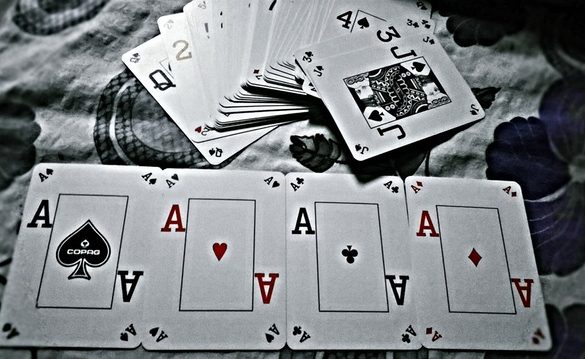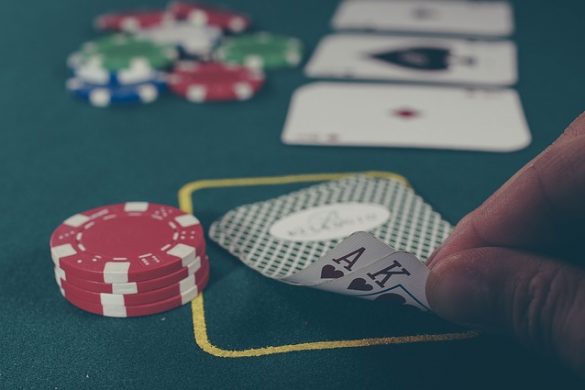Introduction
Gambling is an ancient activity with universal appeal, transcending cultural, economic, and geographical boundaries. From the dice games of Mesopotamia to online slot platforms like Asia128, it has continuously evolved to reflect societal trends. Its ubiquity demonstrates humanity’s fascination with luck and risk, but its implications are far-reaching. This article explores gambling’s role in history, its socioeconomic consequences, and the delicate balance between its recreational benefits and the potential harms of addiction. By examining these dimensions, we gain a holistic understanding of gambling’s cultural resonance.
Historical Significance in Various Cultures
The history of gambling is as diverse as the cultures that practice it. Ancient societies often intertwined gambling with religious or ceremonial activities. For example:
- Ancient Egypt and Mesopotamia: Archaeologists have discovered dice and board games dating back thousands of years, used for divination and leisure.
- China: Gambling has a storied history in Chinese culture, with records of games like keno helping to fund public works, including parts of the Great Wall.
- Europe: The Roman Empire embraced gambling, particularly in the form of dice games, which became widespread despite occasional moral opposition.
In each context, gambling reflected societal values and norms. For instance, in feudal Japan, samurai were known to engage in cho-han (a dice game), emphasizing the culture’s focus on honor and strategy.
Socioeconomic Impact and Controversies
Economic Contributions
Gambling is a significant driver of economic activity. Globally, the gambling industry generates billions annually, supporting jobs and contributing to public revenue through taxes. In Las Vegas, the casino industry directly employs over 200,000 people and attracts millions of tourists each year.
In developing countries, gambling often serves as a tool for economic development. Governments in regions like Southeast Asia use gambling revenue to fund infrastructure projects, healthcare, and education. Slot Kamboja, for example, exemplifies how localized gambling industries can stimulate regional economies while catering to cultural preferences.
Social Concerns
However, gambling also brings challenges. Problem gambling and addiction strain individuals, families, and public health systems. Studies estimate that approximately 1-3% of gamblers worldwide suffer from gambling disorders, often leading to financial ruin, mental health issues, and social isolation.
Efforts to address these issues include strict regulations, mandatory self-exclusion programs, and public awareness campaigns. Despite these measures, balancing economic benefits with social responsibility remains an ongoing challenge.
Gambling’s Role in Modern Culture
A Source of Entertainment
Modern gambling spans traditional venues like casinos to digital platforms offering online poker, sports betting, and slot games. This accessibility has expanded gambling’s reach, making it a popular pastime for diverse demographics.
Televised poker tournaments, live-streamed gaming, and mobile apps have transformed gambling into a spectator sport and social activity. For many, it is not just about winning but also about the communal and recreational experience.
Controversial Themes in Media
Pop culture often portrays gambling with a mix of glamour and caution. Films like Casino Royale romanticize the thrill of high-stakes play, while others, such as Uncut Gems, delve into the darker consequences of addiction. These representations influence public perceptions, highlighting both the allure and potential pitfalls of gambling.
Balancing Recreation and Addiction
Promoting Responsible Gambling
Responsible gambling initiatives aim to mitigate harm while preserving gambling’s recreational value. These include:
- Education: Public campaigns emphasize recognizing early signs of problem gambling.
- Technology: Platforms increasingly implement algorithms to monitor risky behavior, encouraging users to set limits or take breaks.
- Support Systems: Collaborations between gaming operators and organizations provide resources for at-risk players.
Striking a Balance
Striking the balance between enjoyment and harm reduction is critical. Regulatory frameworks must be robust yet flexible, adapting to emerging trends like cryptocurrency betting and virtual reality casinos.
Global Perspectives and Cultural Adaptation
Cultural attitudes towards gambling vary widely:
- In East Asia, gambling is often viewed as a social activity, deeply integrated into festivals and traditions.
- Western societies tend to regulate gambling heavily, framing it as both an entertainment medium and a potential societal risk.
- In Islamic cultures, gambling is prohibited by religious doctrine, yet informal gambling practices persist in certain communities.
Understanding these nuances is essential for developing culturally sensitive policies and practices that respect traditions while addressing public health concerns.
Conclusion
Gambling occupies a multifaceted role in global cultures, serving as a source of entertainment, a driver of economic activity, and a reflection of societal values. While its recreational appeal is undeniable, the risks associated with addiction and financial harm underscore the importance of responsible practices. By learning from historical examples and modern strategies, societies can harness gambling’s potential benefits while mitigating its downsides. As gambling continues to evolve, fostering awareness and regulation will ensure it remains a balanced part of cultural expression.
Key Takeaways:
- Gambling has historical roots in nearly every culture, reflecting societal values and traditions.
- The industry contributes significantly to global and regional economies, offering jobs and public revenue.
- Responsible gambling measures are vital to mitigate addiction and promote healthy practices.
- Cultural attitudes towards gambling influence regulatory frameworks and public perceptions.
- The future of gambling lies in balancing innovation with ethical responsibility.









